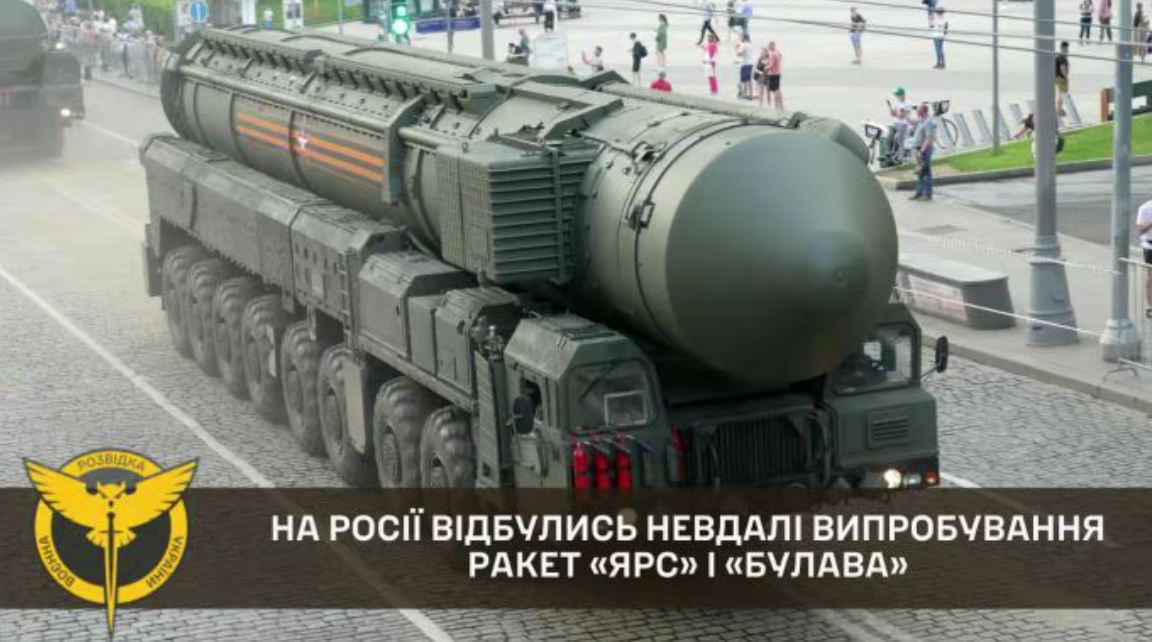Russian nuclear weapons delivery systems faced setbacks in recent tests, according to Ukrainian intelligence reports. These tests, conducted in late October and early November, involved the RS-24 Yars and RSM-56 Bulava missiles. The RS-24 Yars, a vital component of Russia’s land-based strategic nuclear forces, experienced a course deviation during its launch from the Plesetsk Cosmodrome in Arkhangelsk Oblast, reminiscent of issues observed in previous strategic missile exercises on October 25, 2023.
On October 25, the test launch of the RSM-56 Bulava missile from a Borey-class submarine ended unsuccessfully. The malfunction highlighted the continued unreliability of the Bulava missile, a submarine-launched ballistic missile designed for Russia’s sea-based nuclear deterrent. These test failures have raised doubts about the effectiveness and readiness of Russia’s strategic nuclear forces.
Ukraine’s military intelligence, known as the Main Directorate of Intelligence of the Ministry of Defense of Ukraine (GUR MO), revealed that Moscow is also grappling with substantial difficulties in the development of the RS-28 Sarmat intercontinental ballistic missile (ICBM). The RS-28 Sarmat is intended to replace the aging RS-20V Voevoda, commonly known as the SS-18 Satan, as a cornerstone of Russia’s land-based ICBM fleet.
However, GUR MO reported that the RS-28 Sarmat project has faced extensive delays and challenges. In comparison to Ukraine’s RS-20V Voevoda ICBM, the RS-28 Sarmat lacks structural advantages, sophisticated engineering, or methods for countering anti-missile systems, making it a less advanced missile system. This raises concerns about Russia’s ability to maintain a credible nuclear deterrence strategy.
Furthermore, Russia’s plans to deliver new Tu-160M2 strategic bombers in 2023 have been postponed. The delay is attributed to Russia’s failure to restore the production of the new version of NK-32 engines required for the Tu-160M2. This delay in modernizing its strategic bomber fleet suggests difficulties in Russia’s military-industrial complex.






